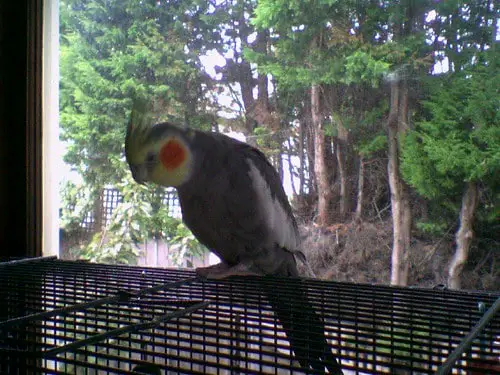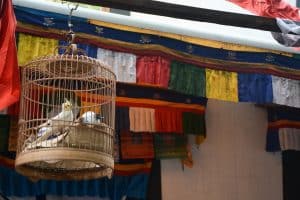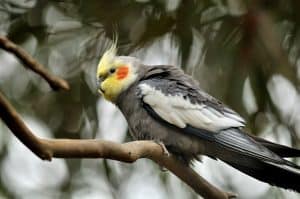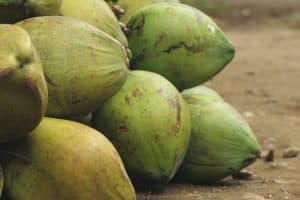When you bring a cockatiel into your home, you’re not just getting a chirpy little companion; you’re also signing up for some unique caretaking duties, including understanding their droppings. Yes, you read that right! Monitoring your cockatiel’s droppings might not be the most glamorous aspect of pet ownership, but it’s crucial for keeping your feathered friend healthy.
Cockatiel droppings can tell you a lot about their health and well-being. Changes in color, consistency, or frequency can be early indicators of health issues. Knowing what to look out for can help you catch potential problems before they become serious, ensuring your cockatiel stays happy and healthy for years to come.
So, let’s dive into what you need to know about cockatiel droppings. From decoding colors to understanding textures, you’ll become an expert in no time, giving your pet the best care possible.
Understanding Cockatiel Droppings
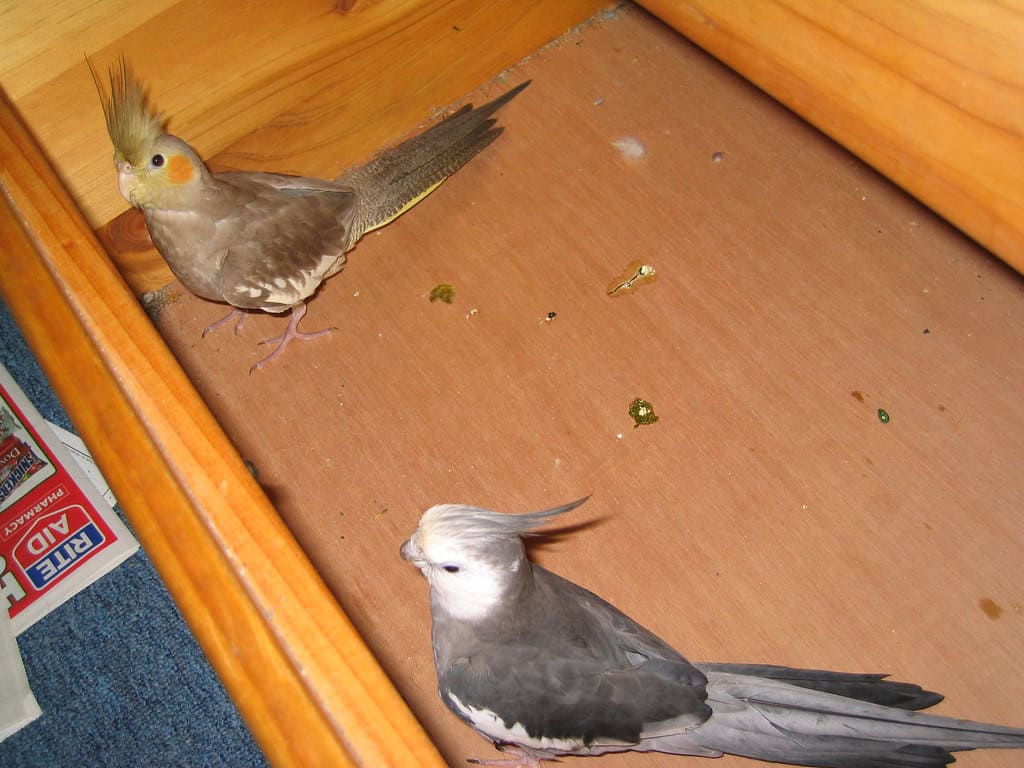
Cockatiel droppings provide critical insights into the health of your pet bird. Observing the characteristics of bird’s poop helps in monitoring their well-being and spotting potential health issues early.
Recognizing Normal Droppings
Normal cockatiel droppings consist of three components: a dark fecal part, a white urate part, and clear liquid, which is the urine. Typically, these droppings should not have an overly foul odor and the fecal component should be firm and well-formed. The appearance might change slightly based on the bird’s diet; for example, consumption of watery fruits might result in a slight increase in the liquid portion of the droppings.
Observing what’s normal for your cockatiel under different dietary conditions is key, as changes might not always signal a problem. For instance, if your bird’s diet includes a variety of fresh foods alongside standard seed diets, the feces might occasionally appear slightly more colorful or wetter, which can be normal.
Identifying Abnormal Droppings
Abnormal droppings in cockatiels are often the first sign of health issues. Be alert for any drastic changes in color, consistency, or frequency. Signs of abnormal droppings include:
- Presence of undigested food, which might suggest issues with the digestive tract or a need for a vet check to rule out conditions like liver disease or pancreatic disease.
- Excessive watery droppings, termed polyuria, could indicate kidney disease, a bacterial or yeast infection, or simply the result of eating too many watery fruits. Nevertheless, if this condition persists, consulting an avian vet is crucial.
- Any hint of red or excessive darkness in the droppings could be indicative of internal bleeding or other serious health problems and requires immediate attention.
Monitoring your cockatiel’s poop regularly, especially changes in the morning, gives you a head start in spotting potential health issues. Always keep a log if you are uncertain, and do not hesitate to reach out for a professional opinion from an avian veterinarian for a complete health assessment through fecal and blood chemistry profiles or other necessary tests if abnormal signs persist.
Common Health Issues Indicated by Droppings
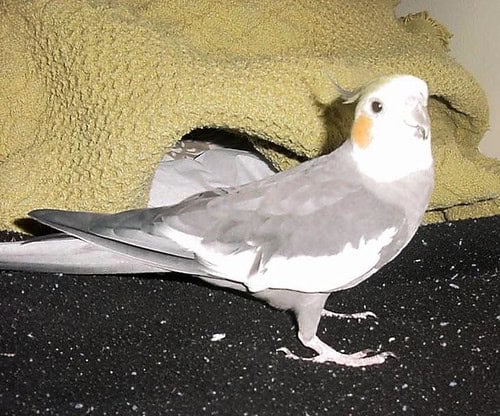
Monitoring your cockatiel’s droppings is crucial for identifying health issues. Any deviation from normal droppings could signal underlying problems.
Diarrhea and Its Causes
Diarrhea in cockatiels is characterized by wetter, more unformed stools that deviate from the typical solid and white urate component. It’s often a symptom of intestinal infections or a diet rich in watery fruits, both of which affect the digestive tract. Overfeeding fruits can disrupt the normal balance in your bird’s intestines, leading to watery droppings.
Additionally, bacterial or yeast infections can compromise the intestinal health of your bird, causing diarrhea. If diarrhea persists, a consultation with an avian veterinarian is critical, as prolonged diarrhea can lead to dehydration and further health complications. Changes in food or excessive ingestion of fresh foods without adequate fiber can also contribute to diarrhea. Always ensure the diet is well-balanced to prevent digestive issues.
Signs of Psittacosis in Cockatiels
Psittacosis, also known as parrot fever, is a serious bacterial infection that cockatiels can contract and spread to other birds and, occasionally, humans. Signs of this illness in your cockatiel include lethargy, appetite loss, and abnormal droppings. Infected birds might display a general malaise or a sudden change in their fecal consistency, often becoming more liquid or containing undigested food.
Moreover, breathing difficulties, discharge from the nostrils, and feather ruffling are additional indicators of this condition. Diagnosing Psittacosis requires several tests, including a complete blood count and a microscopic examination of droppings by an experienced avian vet. Early detection and treatment are key to managing this illness, so if you suspect Psittacosis, it’s essential to isolate the affected bird and contact your vet promptly.
Care and Prevention
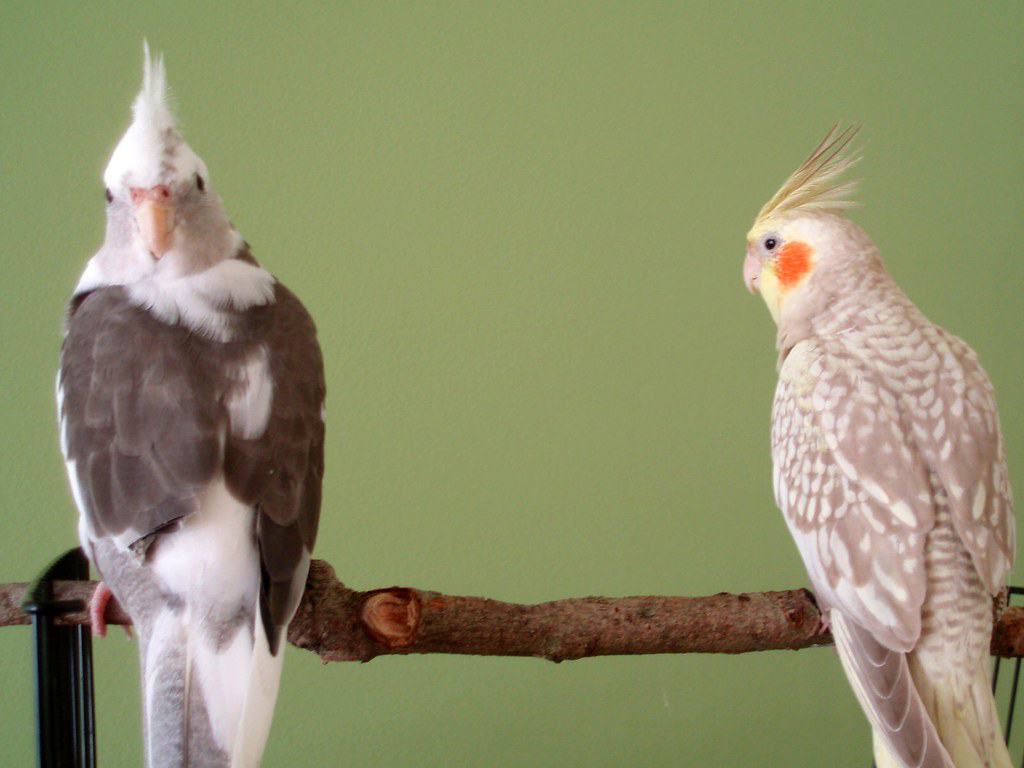
In ensuring the well-being of your cockatiel, attentive care and preventive measures are crucial. By monitoring your bird’s droppings and maintaining a healthy living environment, you can prevent numerous health issues.
Daily Monitoring of Droppings
To monitor the health of your cockatiel effectively, check its droppings daily. Normal droppings consist of three components: feces, urine, and urate. Changes in the appearance or quantity of these components could indicate a health problem. For instance, an excessive amount of clear liquid urine, known as polyuria, might suggest a need to conserve water or a dietary imbalance. Similarly, any sudden changes in color or consistency often require a vet check to rule out issues like infections or digestive problems.
Importance of a Balanced Diet
A balanced diet plays a pivotal role in maintaining the normal droppings of your cockatiel. Ensure your bird’s diet includes a mix of seeds, fresh food, and pellets. Watery fruits should be provided in moderation to avoid watery droppings. Monitor the changes in droppings when introducing new foods to understand what suits your bird best. This preventative measure helps maintain the general health of your cockatiel and supports the proper function of its digestive tract.
Stress Reduction Techniques
Reducing stress in your cockatiel is key to preventing health issues that can affect its droppings. Create a calm environment by placing the bird’s cage in a quiet, safe area of your home. Minimize changes in the surrounding environment to avoid startling your cockatiel. Regular interaction and gentle handling can also help in reducing stress. If you notice signs of stress, such as changes in droppings or appetite loss, consider consulting an avian veterinarian for further guidance on stress management and health monitoring.
Potential Human Health Risks
Managing a cockatiel’s droppings includes understanding their potential impact on human health. Bird droppings, including those from cockatiels, may pose risks if not handled correctly.
Is Cockatiel Poop Toxic to Humans?
Cockatiel poop is generally not toxic to humans; however, it can harbor harmful bacteria and fungi. For instance, if cockatiel droppings dry out and become airborne, you might inhale particles that can lead to respiratory issues if your immune system is compromised. Regular cleaning of your bird’s cage and proper hygiene can minimize this risk.
Preventing Psittacosis and Other Zoonotic Diseases
Psittacosis, also known as parrot fever, is a notable disease transmitted from birds to humans through infected droppings. Symptoms in humans can include fever, chills, headache, and pneumonia. To prevent this and other zoonotic diseases, adopt these effective practices:
- Maintain Cleanliness: Ensure regular and thorough cleaning of cages using appropriate disinfectants. This action reduces the risk of droppings drying and becoming airborne.
- Personal Hygiene: Always wash your hands thoroughly with soap and water after handling birds or cleaning their cages.
- Veterinary Care: Regular vet checks for your cockatiel can identify and treat potential zoonotic diseases before they spread. If your cockatiel’s droppings change in consistency, color, or smell, consult an avian veterinarian promptly.
Advanced Insights into Cockatiel Droppings
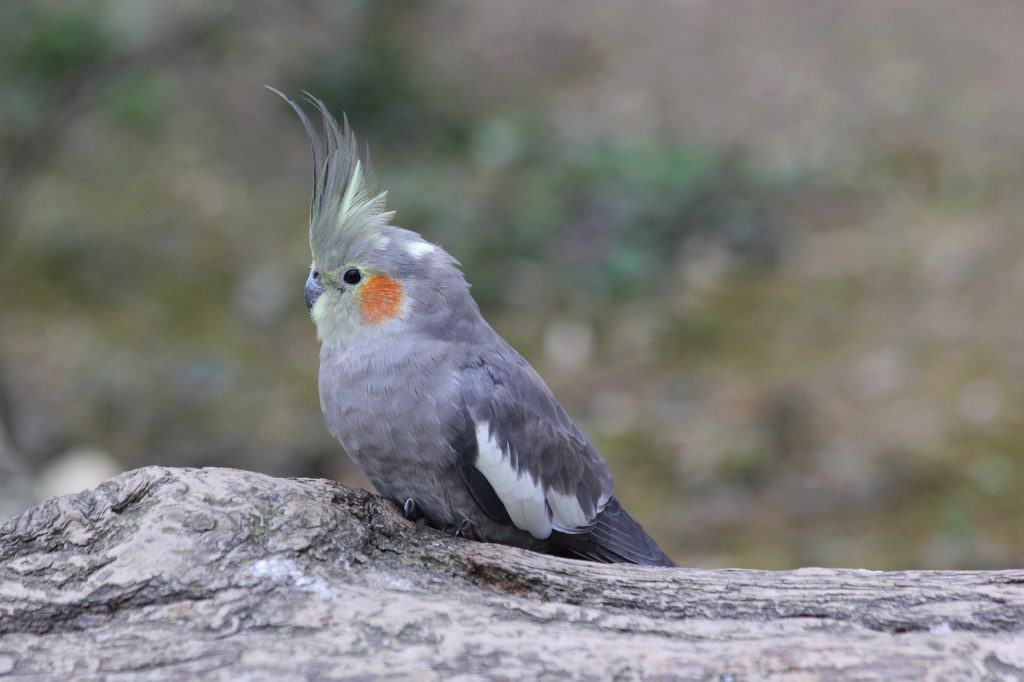
As you delve deeper into the nuances of cockatiel care, understanding their droppings becomes increasingly vital. Beyond the basics of color and consistency, there are several advanced aspects of cockatiel droppings that can offer more detailed insights into their overall health and well-being.
Factors Affecting Dropping Characteristics
Cockatiel droppings are influenced by various factors that go beyond diet and hydration. Environmental factors, stress levels, and even the bird’s age can all affect the appearance and consistency of their droppings.
1. Environmental Factors
The environment in which your cockatiel lives can significantly impact its droppings. Temperature and humidity levels in the cage area play a crucial role. High temperatures and low humidity can lead to dehydration, causing firmer, more concentrated droppings. Conversely, high humidity can result in more liquid droppings. It’s essential to maintain a balanced environment to support your cockatiel’s health.
2. Stress and Behavior
Cockatiels are sensitive to changes in their environment, and stress can manifest in various ways, including their droppings. A new pet, a change in routine, or even loud noises can stress your cockatiel. Stress can lead to changes in droppings, such as increased frequency or alterations in consistency. Observing behavioral changes in conjunction with dropping changes can help identify stressors.
3. Age-Related Changes
As cockatiels age, their digestive systems may undergo changes, affecting their droppings. Older cockatiels might experience slower digestion or changes in metabolism, which can influence the consistency and frequency of their droppings. Regular check-ups with an avian veterinarian are recommended to monitor age-related health changes.
Dietary Considerations and Their Impact
A cockatiel’s diet is a major factor influencing their droppings. While a balanced diet is essential, certain foods and feeding practices can lead to variations in droppings.
1. The Role of Seeds and Pellets
Seeds and pellets are staples in a cockatiel’s diet. However, the type and quantity can affect dropping characteristics. Seeds, especially those high in fat, can lead to firmer droppings if not balanced with other foods. On the other hand, pellets are formulated to provide balanced nutrition and usually result in more consistent droppings. It’s crucial to provide a variety of food to ensure a well-rounded diet.
2. Fresh Foods and Fruits
Fresh fruits and vegetables are important for a cockatiel’s health, but they can also influence droppings. For example, fruits with high water content can lead to more liquid droppings. Introducing new fruits gradually and observing their impact on droppings can help manage this effect. Remember to avoid feeding fruits that are too sugary or acidic, as they can cause digestive issues.
3. Treats and Supplements
Cockatiels often enjoy treats, but overfeeding them can lead to imbalanced droppings. Treats should be given in moderation and should not replace a balanced diet. Supplements, like vitamins and minerals, can also impact droppings. Ensure that any supplements are administered as per veterinary recommendations to avoid digestive disturbances.
- PREMIUM BLEND of seeds and Natural FruitBlend Pellets to provide your bird a sensible way to indulge in a seed mix.
- Made specifically for Lovebirds, Quakers, Small Conures and Cockatiels. This blend includes a delicious mix of right-sized pieces for your bird which helps minimize wasted food.
- Feed Sensible Seed to help satisfy your birds playful and fun-loving instincts and help create an interactive activity with each feeding.
- ADD ENRICHING VARIETY to your birds weekly food program. May be fed up to 30 percent of the total food your bird eats each week.
- CONVERT YOUR BIRD TO A HEALTHIER DIET. Converting your bird to a food that includes pellets is worth the effort for his/her health and wellbeing.
Health Monitoring Techniques
Monitoring your cockatiel’s droppings is just one part of maintaining their health. Implementing additional monitoring techniques can provide a more comprehensive view of their well-being.
1. Regular Health Check-Ups
Routine check-ups with an avian veterinarian are essential for maintaining your cockatiel’s health. These visits can include fecal tests to identify underlying issues that might not be apparent through droppings alone. Regular blood work can also help detect systemic problems early.
2. Record Keeping
Keeping a detailed record of your cockatiel’s droppings can be incredibly useful. Documenting changes in color, consistency, and frequency can help identify patterns and potential health issues. This information can be invaluable during veterinary visits, providing a clearer picture of your bird’s health over time.
3. Observing Behavior
Changes in droppings should be considered alongside other behavioral observations. Changes in appetite, energy levels, or interactions can provide additional clues about your cockatiel’s health. A holistic approach to monitoring includes both physical and behavioral aspects.
Handling and Hygiene Practices
Proper handling and hygiene practices are crucial for maintaining both your cockatiel’s and your own health.
1. Cage Cleaning
Regular cleaning of your cockatiel’s cage is essential to prevent the buildup of bacteria and fungi. Use bird-safe disinfectants to clean the cage, and replace bedding and perches as needed. A clean environment reduces the risk of infections and helps maintain a healthy habitat.
2. Personal Hygiene
After handling your cockatiel or cleaning their cage, wash your hands thoroughly. This practice helps prevent the transfer of any potentially harmful bacteria or fungi. Avoid touching your face or food before washing your hands to reduce the risk of zoonotic diseases.
3. Quarantine Procedures
If you introduce a new bird to your household, it’s essential to quarantine them initially. This practice helps prevent the spread of potential diseases to your existing cockatiel. Monitor the new bird’s droppings and overall health closely during this period.
Wrapping Up: Cockatiel’s Droppings
Maintaining vigilance over your cockatiel’s droppings is essential for their health and your safety. By incorporating daily checks, ensuring a nutritious diet, and managing stress levels, you’re setting the stage for a thriving life for your feathered friend. Remember, changes in their droppings can signal health issues that require immediate attention from a vet. Equally important is your health; practicing good hygiene and cleanliness minimizes the risk of zoonotic diseases. By following these guidelines, you’ll foster a safe and healthy environment for both you and your cockatiel.
Other suggested articles:
Can a Cockatiel Be Potty Trained? A Complete Guide
Why Do Cockatiels Eat Their Poop?
